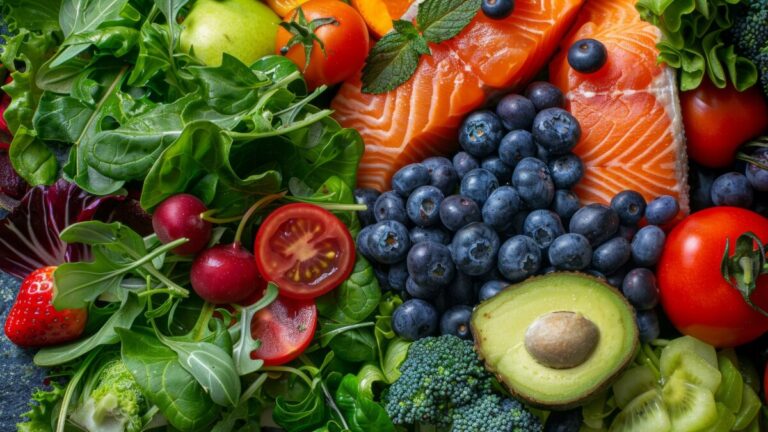
So much is said about inflammation these days. It has become Public Enemy No1 for modern humanity. It is linked with everything and to be blamed for most of our health troubles. Inflammation is a natural defence mechanism that helps the body heal and protect itself. However, when it becomes chronic, it can lead to serious health issues. These include issues such as heart disease, diabetes, and autoimmune disorders. Research continues to reveal the connection between diet and inflammation. So adopting an anti-inflammatory diet has gained significant attention for its potential to improve overall health. In addition the benefit of reducing the risk of chronic diseases is hard to ignore.
Inflammation is the body’s immune response to injury, infection or irritation. In acute cases, such as a cut or sprain, inflammation is beneficial, promoting healing through redness, swelling, and warmth. However, chronic inflammation is a longer-term process. It can damage tissues and organs, contributing to conditions like arthritis, cancer, cardiovascular diseases, and neurodegenerative disorders.
The foods we eat play a critical role in either promoting or reducing inflammation. A diet high in processed foods, sugars, and unhealthy fats can exacerbate inflammation, while nutrient-rich whole foods can help mitigate it.
What is an Anti-Inflammatory Diet?
An anti-inflammatory diet focuses on foods that contain nutrients known to combat inflammation, such as antioxidants, omega-3 fatty acids, and fibre. Dietary patterns like the Mediterranean Diet and the DASH Diet are widely recognised for their anti-inflammatory benefits. These eating plans emphasise whole, plant-based foods, lean proteins, and healthy fats, promoting a balanced approach to long-term health.
Key Components of an Anti-Inflammatory Diet
- Fruits and Vegetables
Colourful fruits and vegetables are packed with phytonutrients, vitamins, and fibre. Berries (such as blueberries and strawberries), leafy greens like spinach and kale, and cruciferous vegetables such as broccoli are known for their powerful anti-inflammatory properties. - Healthy Fats
Omega-3 fatty acids found in salmon, mackerel, flaxseeds, and walnuts help to reduce inflammation. Extra virgin olive oil, a staple in the Mediterranean Diet, is another excellent source of anti-inflammatory fats. - Whole Grains
Unlike refined grains, whole grains like quinoa, brown rice, and oats contain more fibre and nutrients, which can help lower inflammation. - Proteins
Plant-based proteins such as lentils, chickpeas, and tofu are excellent choices, while lean meats like poultry and fish should be consumed in moderation. Reducing red and processed meat intake is also crucial for minimising inflammation. - Spices and Herbs
Natural flavour enhancers such as turmeric, ginger, and garlic are celebrated for their anti-inflammatory and antioxidant effects. Turmeric, in particular, contains curcumin, a compound with potent anti-inflammatory properties. - Beverages
Hydration is essential, and drinks like green tea and black tea contain antioxidants that can help reduce inflammation. Water, of course, is indispensable for overall health and flushing out toxins.
Foods to Avoid

Certain foods are known to promote inflammation and should be limited:
- Processed Foods: Chips, frozen meals, and pre-packaged snacks often contain trans fats and artificial additives.
- Refined Sugars and Carbohydrates: Sweets, sugary drinks, and white bread can spike blood sugar levels, leading to increased inflammation.
- Fried Foods: High in unhealthy fats, fried foods contribute to oxidative stress.
- Excessive Alcohol: While moderate alcohol consumption, particularly red wine, may have some benefits, excessive intake can promote inflammation.
Anti-Inflammatory Diet Tips
Making dietary changes doesn’t have to be overwhelming. Here are some simple ways to get started:
- Plan Ahead: Create a weekly meal plan featuring anti-inflammatory ingredients.
- Make Small Swaps: Replace white bread with wholegrain alternatives, sugary drinks with water or herbal tea, and fried snacks with nuts or seeds.
- Experiment with Recipes: Try dishes like quinoa salad with mixed vegetables, turmeric-spiced lentil soup, or baked salmon with roasted broccoli.
Diet alone isn’t the only factor in reducing inflammation. Incorporating exercise, managing stress, and prioritising quality sleep can amplify the benefits of an anti-inflammatory diet. Chronic stress and poor sleep can exacerbate inflammation, so adopting mindfulness practices and establishing a regular sleep schedule can contribute significantly to overall health.
If you have a diagnosed inflammatory condition, such as arthritis or Crohn’s disease, it’s important to consult with a healthcare provider or registered dietitian to tailor your dietary plan to your specific needs.
In recent years, research has highlighted how anti-inflammatory diets can benefit pregnant individuals by reducing the risk of complications such as gestational diabetes and preeclampsia. The growing interest in personalised nutrition has also led to new apps and services that make adopting this diet more accessible.
An anti-inflammatory diet is not only a pathway to reducing chronic inflammation but also a step towards improved overall health. By incorporating nutrient-dense, whole foods into your meals and minimising pro-inflammatory items, you can enhance your well-being and lower your risk of chronic disease.
Start small: perhaps with a bowl of mixed berries for breakfast or a cup of green tea in the afternoon. Over time, these incremental changes will lead to a healthier, inflammation-free lifestyle.


